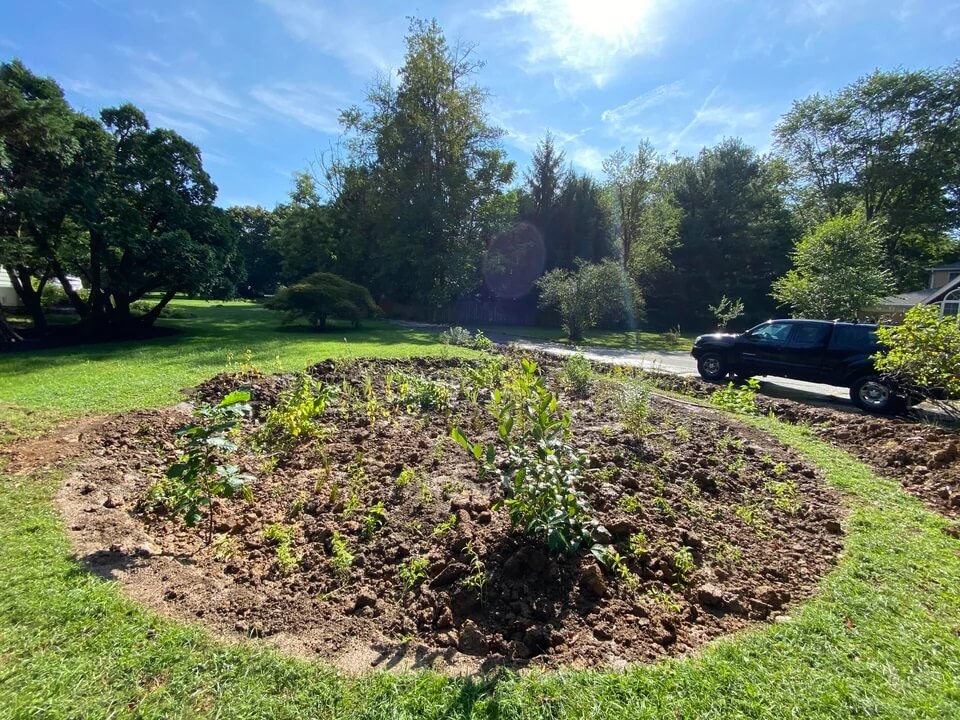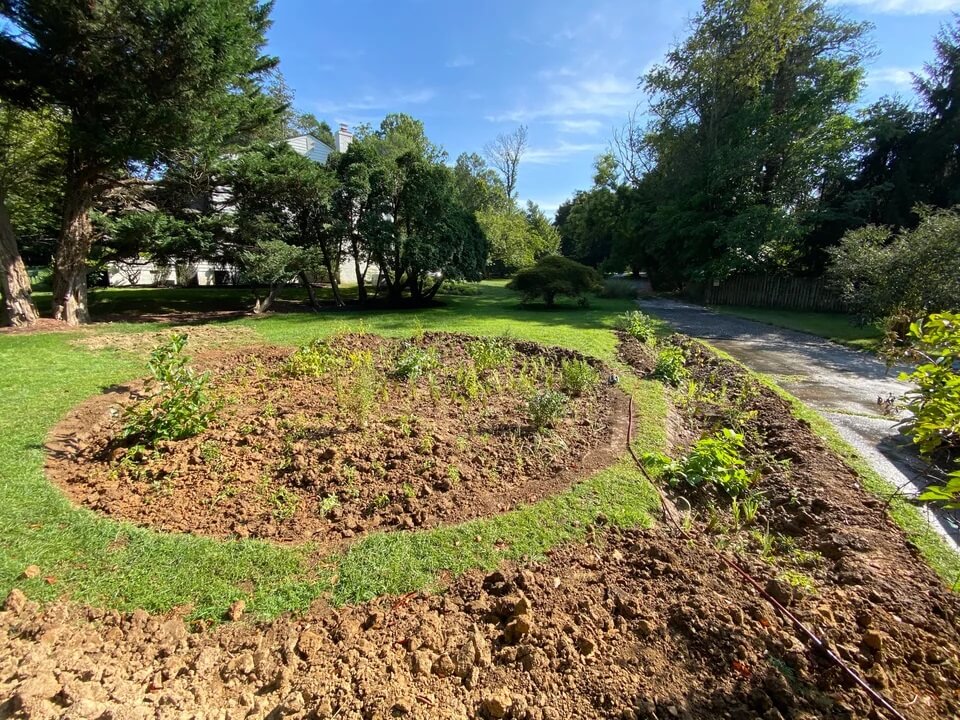Installing a rain garden can be a massive undertaking, so one homeowner couldn't help but be proud of their work after revamping their yard.
One Redditor shared a photo gallery showing off their completion of the extensive project in the r/NativePlantGardening subreddit. The user said they were "sore" afterward, but it's clear they were satisfied with their work.


The user also added a comment that explained the long list of water-loving plants added to the garden. "Small plugs make up the bulk of the community, with a few additional perennials and shrubs," they wrote. The project undoubtedly impressed other Reddit users.
"You did an AMAZING job!! Huge props to you, especially since you did it all by hand," one user commented.
There were some who weren't familiar with what a rain garden is, so the user explained how it works.
"Basically it's a garden installation that is designed to help rainwater runoff infiltrate into the ground more effectively. Lawns actually do contribute to runoff in heavy downpours, and this was all lawn beforehand," the user wrote. " ... All the plants selected here not only tolerate but like being super wet so they should thrive! Function and fashion."
Rain gardens help prevent flooding and can protect the rest of the yard — plus the house foundation — from excessive moisture. Planting native plants that absorb the water would thereby help it soak into the ground safely.
Lawn replacement is often viewed as a hassle, but there are multiple eco-friendly options that wouldn't require too much maintenance. Native plants, clover, buffalo grass, and xeriscaping are just some of the viable alternatives. Even a partial lawn replacement would allow homeowners to see the extensive benefits.
Installing a native plant lawn can help save money and time on lawn maintenance, conserve water, lower water bills, and create a healthier ecosystem for the pollinators of gardens and farms. This guide can help walk you through the process of replacing your lawn with more eco-friendly options.
Join our free newsletter for easy tips to save more, waste less, and help yourself while helping the planet.









